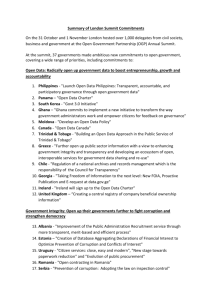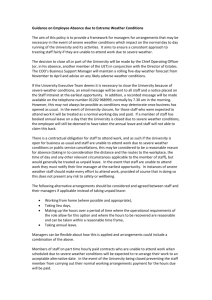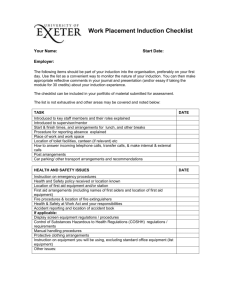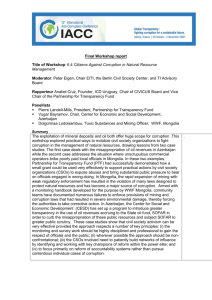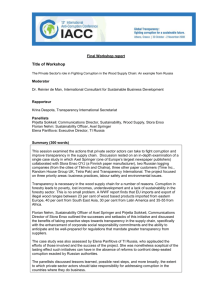Negotiating international contracts for large projects
advertisement
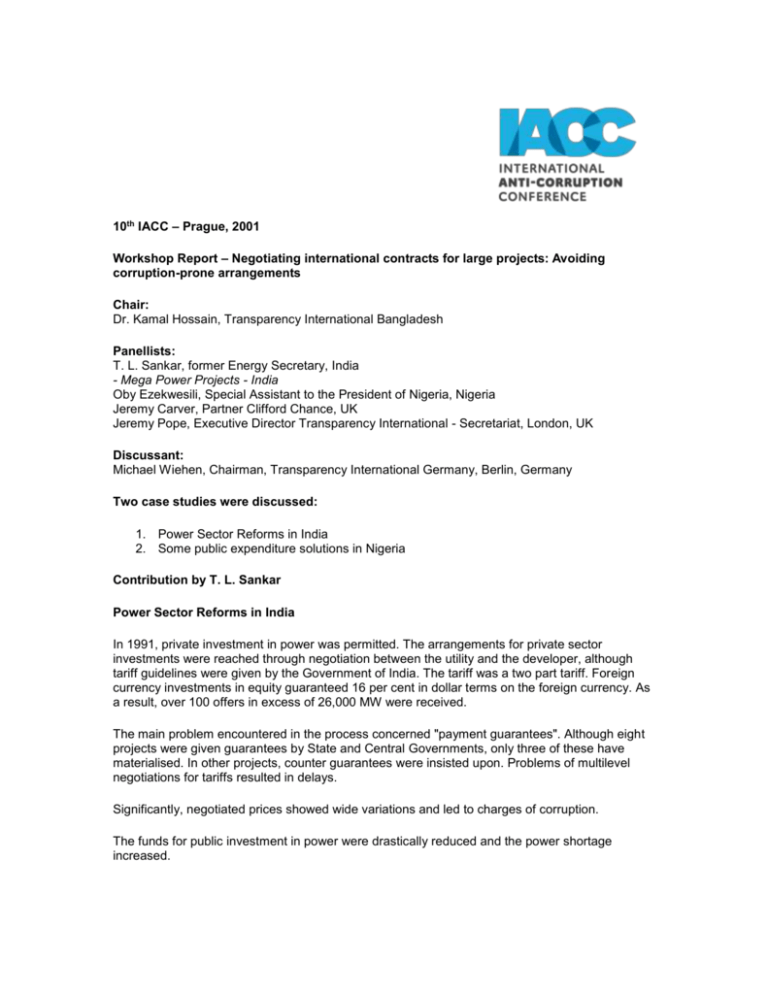
10th IACC – Prague, 2001 Workshop Report – Negotiating international contracts for large projects: Avoiding corruption-prone arrangements Chair: Dr. Kamal Hossain, Transparency International Bangladesh Panellists: T. L. Sankar, former Energy Secretary, India - Mega Power Projects - India Oby Ezekwesili, Special Assistant to the President of Nigeria, Nigeria Jeremy Carver, Partner Clifford Chance, UK Jeremy Pope, Executive Director Transparency International - Secretariat, London, UK Discussant: Michael Wiehen, Chairman, Transparency International Germany, Berlin, Germany Two case studies were discussed: 1. Power Sector Reforms in India 2. Some public expenditure solutions in Nigeria Contribution by T. L. Sankar Power Sector Reforms in India In 1991, private investment in power was permitted. The arrangements for private sector investments were reached through negotiation between the utility and the developer, although tariff guidelines were given by the Government of India. The tariff was a two part tariff. Foreign currency investments in equity guaranteed 16 per cent in dollar terms on the foreign currency. As a result, over 100 offers in excess of 26,000 MW were received. The main problem encountered in the process concerned "payment guarantees". Although eight projects were given guarantees by State and Central Governments, only three of these have materialised. In other projects, counter guarantees were insisted upon. Problems of multilevel negotiations for tariffs resulted in delays. Significantly, negotiated prices showed wide variations and led to charges of corruption. The funds for public investment in power were drastically reduced and the power shortage increased. During 1996-97, the Governments of Japan, Korea and Germany and others offered to assist India set up large power projects. The Indian Government established a Standing Independent Group (SIG) of eminent men to negotiate contracts and finalise the tariff for mega projects (i.e. over 1,000 MW). The SIG was required to ensure the time taken for processing, bidding and negotiation should be short. The SIG undertook initial work in order to develop principles of negotiation: pre-negotiation requirements were established the bidding process was to be a two-stage process legal and institutional hurdles were addressed procedural improvements identified. (For more detail please see paper presented by T. L. Sankar.) Contribution by Oby Ezekwesili In Nigeria, major project expenditure has in the past lacked discipline. A new process was developed called "The due process compliance" as an instrument of compliance for public expenditure. This has a number of elements including: capital project certification contract award process completion of work certification scrutiny of variations to contracts Presidential oversight A lawyer's observations (Jeremy Carver) There are a number of common elements that can be identified to minimize the risk of corrupt international contractual arrangements: 1. the necessity to properly and adequately define the project and the project results with sufficient certainty 2. the recognition that the only good project is one in which there is no corruption involved 3. the requirement to eliminate ignorance about the project otherwise risks are not properly appreciated or understood; there are risks of inflated contracts and the risk of uncertain results 4. the need for mutual confidence - in particular, that the contractor has reliably demonstrated their credentials and capabilities and this has been tested by means of due diligence 5. lenders must be more prudent in the allocation of funds and have a responsibility to be accountable to shareholders etc; and 6. the need to identify contractual failures and to verify that the contractual obligations have been discharged to the level required by the project. The role of the rule of law and good governance (Jeremy Pope) To contain the risks of corruption-prone arrangements, we must: 1. recognise the essential role of the rule of law and good governance 2. work to raise the awareness of professional standards of good conduct among professionals, for example lawyers and engineers 3. increase the risks of the consequences of corruption downstream 4. have mechanisms to identify contracts that warrant scrutiny, even if focusing on those contracts that appear to be priced at inflated rates of more than ten or fifteen percent 5. have a process that requires a number of sign-offs, including by independent advisers 6. institutionalise transparency in the granting of contracts 7. implement arrangements to penalise those found to have been involved in corrupt arrangements Main Themes Covered 1. Prevention is better than cure. 2. How accountability and transparency of government can actually be reflected in major international projects. 3. The need for equal bargaining power in negotiating contracts to avoid asymmetrical - and therefore unsustainable - contracts 4. How to bring the activities of local agents into the visible framework of the negotiations and arrangements to enable scrutiny Main Conclusions 1. Emphasis on due diligence o The project should be demand- and not supply-driven. o At the earliest stage it is extremely important that the total independence and objectivity of all consultants involved be established. o The integrity of the environmental and social aspects must be ascertained. 2. Transparency o The balance between confidentiality and transparency has not been resolved. o The procurement process must be transparent. o The process of the evaluation of bids - not just pricing - can give rise to bias and therefore the process of allocating weighting to bids must also be made public. 3. Clarity o The terms, conditions and specifications must be clearly articulated and documented. o Only the minimum amount of discretion should be permitted in the decisionmaking process. o Recognise that although most people agree with the principles of competitive bidding, very few put them into practice. 4. Controls o Put in place adequate and effective controls that address the corruption risks in the various stages of the process. o Some countries have ombudsman schemes and this is even being considered at a regional level in Germany. Typically, the ombudsman would accept complaints, investigate complaints and report directly to the parliament. o With respect to agents, implement requirements that agents only be paid a proper fee for legitimate services. 5. Incentives o Build in both incentives and effective sanctions. o New rules are being introduced for export credit agencies that mean credit is not available for contracts obtained through corruption. In addition, contractors need to declare the contract has not been obtained by means of corruption and, if that statement is violated, cover is denied and, in some cases, fees already paid are forfeited. o o Commercial banks also need to assume a more involved role and be required to undertake due diligence. The export credit agencies have not yet imposed standards on the commercial banks. Consider the use of the Integrity Pact concept which requires the commitment: i. not to pay any bribes ii. to disclose all commissions including agents' fees. The breach of the commitment attracts significant sanctions. There is also a role for civil society in monitoring government activity. 6. Other suggestions o There must be political will at the highest level to implement arrangements to minimise the risks of corruption. o There must be lawyers prepared to act in the public interest to challenge corruption-prone arrangements. o The law itself must be clear. o There ought to be mechanisms so that successive governments are able to take some action in respect of corrupt contracts, although cancellation of those contracts should be a last resort because of the consequences. (See also Workshop "Contracts taken to international arbitration")


